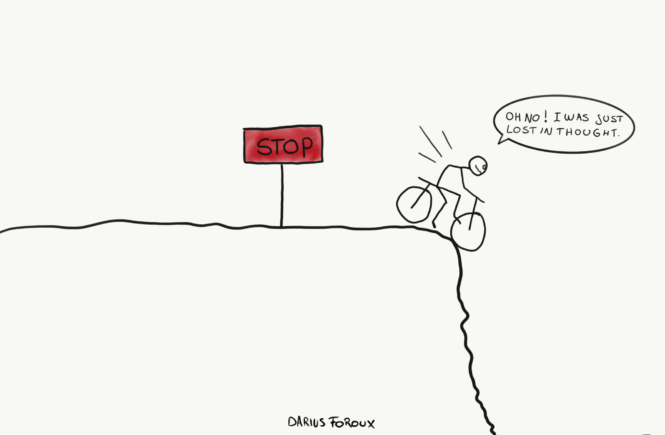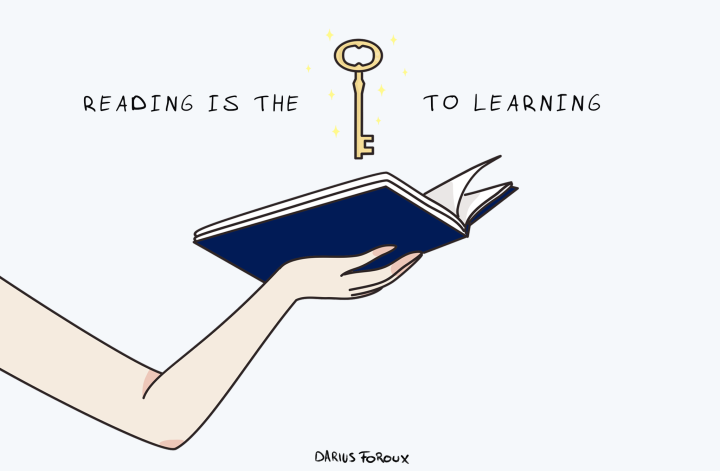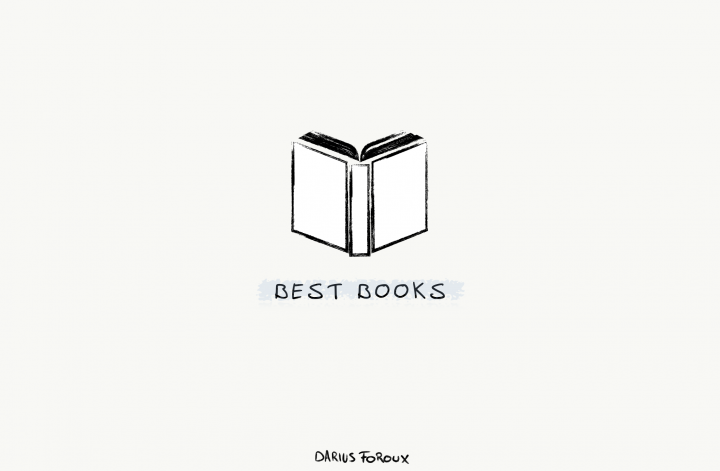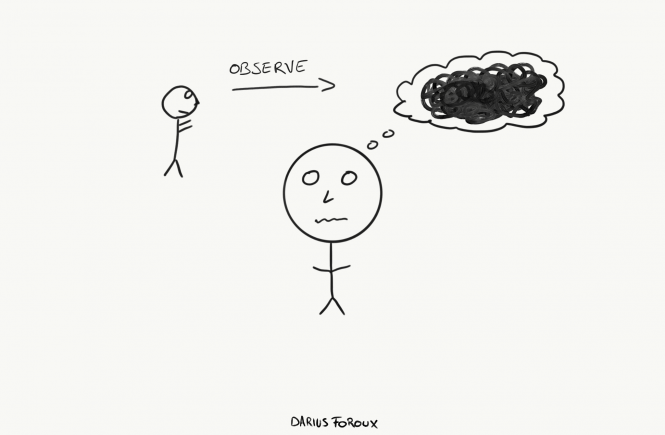So many of us suffer from overthinking. I’m one of those people. For most of my life, I believed it’s okay to be lost in thought. We all have this voice in our head that seems to be a maniac. One moment, the voice is happy, the other moment it’s lashing out, then a few seconds later, it’s judging other people. I eventually had to find good books on overthinking.
Scientific research hasn’t shed a light on who that voice is yet. No one knows! But philosophers and thinkers have been writing about it for centuries. I’ve read hundreds of them. And they’re very helpful. I’m more in control of my thoughts than ever.
Many readers have asked me to share the books that helped me stop overthinking. So here, I’ll share my top three books on this topic. If you’re looking for more book recommendations, check out my full reading list with over 70 great books.
The following three books are my all-time favorites. I’ve re-read these many times. And I would be okay if I only had these books at my disposal on a desert island.
1. A Manual For Living by Epictetus
I often write about how Stoicism helped me find tranquility in life. And this classic text by Epictetus (originally called The Enchiridion), is something that resonates with me a lot.
You can read it in one sitting and it contains the most wisdom per sentence than anything I’ve ever read. I might’ve read it a hundred times, and I still find new ideas and inspiration in this little book. It’s funny. When you keep learning and developing, you start seeing different things in books. That’s what I love about re-reading books. The content doesn’t change, YOU change.
If you haven’t read this book, I recommend dropping everything right now and start reading it. There’s a free version available online. If you want to have a paperback, I recommend the version I linked above.
2. The Untethered Soul by Michael A. Singer
Philosophy will help you to stop overthinking—doesn’t matter what kind or where it’s from. As long as you’re reading philosophy about life, you’ll get something out of it.
Globally speaking, you say there’s a difference between Western and Eastern philosophy. But both have the same goal: To help you live better.
They only have different vehicles for getting there. The Stoics reasoned themselves to tranquility. Eastern philosophies and methodologies like Buddhism, Zen, Mindfulness, and others did it by removing reasoning. Instead, they observed the mind. That’s what meditation is.
You can also practice eastern philosophy without meditating. And that’s what Michael Singer perfectly captures in The Untethered Soul. You can get many things out of this book: Spirituality, meditation techniques, and peace of mind.
I recommend this book to everyone who’s skeptical, practical, and open-minded. Singer does a great job, helping you stop overthinking, without making things complicated or esoteric.
3. Stillness Speaks by Eckhart Tolle
This is a collection of aphorisms about overthinking. It’s short, to the point, and highly practical. Just like Singer’s book, Tolle does a great job at explaining the techniques you can apply without getting bogged down by its history.
Most of us don’t care about the history of philosophy. We care about the practical application of it. Here’s one of my favorite quotes from the book:
“Whenever you are immersed in compulsive thinking, you are avoiding what is. You don’t want to be where you are. Here, Now.”
I think the Stoics would agree with this as well. Overthinking only exists when you’re too busy chasing your desires or running from your repulsions. In fact, that’s what most of us do all our lives.
We need to find the courage within ourselves to be okay with life the way it is. Don’t wish things were different. Things are the way they are—so stop asking, “why is this happening to me?” Accept it. Only then can you be free of your mind.
Stay practical
Most of our thoughts are useless. William James, founder of the philosophical school of pragmatism, said it best:
“A great many people think they are thinking when they are merely rearranging their prejudices.”
The mind is a tool. It’s supposed to work for you, not against you. That’s the premise of my own book about overthinking. Sometimes, we just get stuck inside our own head. If you want to stop overthinking, I highly recommend reading the above books. But remember that it’s more important to apply what you read.
That’s the most important lesson I’ve learned about overthinking. More knowledge and thoughts are not the answer. It’s about executing.




